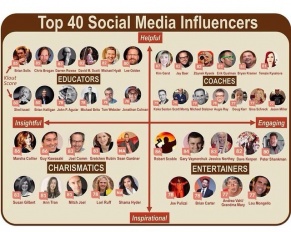No one ever wants to file for bankruptcy, but there are times when such a filing is unavoidable. If you’ve…


No one ever wants to file for bankruptcy, but there are times when such a filing is unavoidable. If you’ve…

When we talk about crime, people conjure up images of shady characters lurking in alleyways or a white chalk outline…

When faced with the grim possibility of divorce, it’s important to know the full extent of the legalities before filing…

Every attorney is compelled to be responsible to maintain the integrity of the legal profession. Every lawyer is bound by a set of legal ethics and they must adhere to them in order to protect the integrity of the profession. Many people have often asked what an attorney should do if they are aware of unethical actions committed on the part of another attorney or legal professional. Are they bound by the law to report these types of actions, or are they exempt? Whenever an attorney becomes aware of unethical actions committed by another legal professional they are required to report the professional misconduct to the ethics committee in New Jersey. Every attorney is required to follow the Rules of Professional Conduct (RPC) including Rule 8.3 which states that a lawyer must report unethical behaviors.

While it may seem that having the last name of Kardashian or Jenner guarantees a bidding war among companies vying…

Even professionals retain their humanity which means that they are not beyond making an error; this includes dental professionals. But every mistake that is made by a dentist while treating a patient may not constitute dental malpractice. However, when a patient is injured through negligent conduct or substandard care by a dentist, oral surgeon or dental assistant, it is wise to consult with an attorney who handles cases of dental malpractice to see if they are entitled to compensation. In the typical case, there are certain rules that determine whether or not dental malpractice or negligence has occurred.
A dental professional is required to provide patients with a level of care that is acceptable. This does not mean that they are required to be perfect; however, they are required to provide practical and prudent dentistry to their clientele. When a dentist fails to provide this high level of care and the patient ends up suffering an injury, the dentist might be required to compensate for the damages his negligence caused.

There are different types of fees which are charged by legal professionals. Lawyers may charge a retainer fee or work on a contingency basis. Many lawyers charge flat fees for the various services they provide. Sometimes clients, such as large corporations, pay a retainer fee. This means that the lawyer is always available to answer questions or handle any legal matters should they arise.

People often find themselves in unfamiliar situations where they could use a bit of legal advice. However, they might not be sure of who to turn to. Consulting with an attorney near you will usually be an appropriate step to take. However, what kind of lawyer does each situation require? This guide will walk individuals through several types of lawyers who handle specific types of cases in the most common areas of law: financial, business, civil, and personal law.

When an indemnity agreement is set in place, financial responsibility is decided. Indemnification according to Black’s Law Dictionary, is “a duty to make good any loss, damage or liability incurred by another.” In general it means to “hold harmless” such that one party will hold another harmless in the case of damage or loss. Therefore, indemnification is the act of not being held liable, or of being protected from costs associated with damages. The costs are shifted to another party who is held liable and will have to pay for any such losses. Indemnity also comes with the understanding that when a party is injured, they have a right to claim compensation or reimbursement for any loss or damages. It can also refer to being compensated for damages or loss that occurs because of the action of a separate party. Or it can be described as a sort of legal exemption from having to pay any type of loss or damage in cases where an indemnity clause is included in a contract.

Some things you just cannot wing it or go it alone, and this is very true when you are ready…